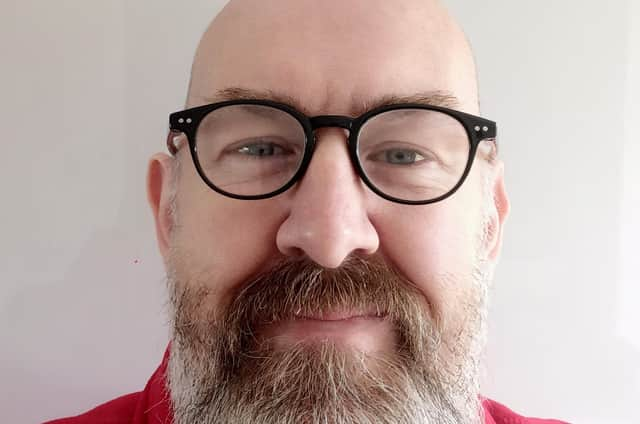Nearly 1,000 patients referred to rehabilitation service for Post-Covid syndrome


Lincolnshire Community Health Services NHS Trust (LCHS) hosts the Lincolnshire Post-COVID Rehabilitation Service which was established in December 2020.
This service brings together existing rehabilitation services from around the county.
Advertisement
Hide AdAdvertisement
Hide AdPost-COVID syndrome - sometimes called Long Covid - is when patients have ongoing Covid-19 symptoms and these cannot be explained by any other condition. Symptoms could include a lasting cough, continued weight loss or muscle pain that doesn’t ease. However, symptoms can be varied and can change over time.
The LCHS staff involved in the service include physiotherapists, a specialist occupational therapist, a specialist cardiac nurse, a GP, therapy assistants and administration staff who all work alongside a wider multi-disciplinary team.
Josh Shaw, an LCHS physiotherapist who leads the service said: “We’ve come a long way since the service began. We have increased the number of services involved, as we’re committed to finding the most appropriate treatment for patients and there are a wide range of symptoms associated with the long-term effects of Covid-19.
“Around 940 patients, including men, women and children have been referred and about 425 people are currently being treated.
Advertisement
Hide AdAdvertisement
Hide Ad“We are generally finding that people are getting better over time with the support of the service and returning to normal activities and work.”
The service arranges for multiple professionals to meet virtually to discuss which services might be best placed to help patients with their recovery. Examples of services involved include specialist post-Covid fatigue service who developed a specialist fatigue management rehabilitation programme and steps2change, who can help with anxiety, low mood and post-traumatic stress disorder. There are also speech and language therapists for issues with swallowing and voice changes.
Patients have a personalised care plan, which is updated and adapted according to their current symptoms and needs.
This service is largely virtual due to the geography of the county; however, patients may be seen face-to-face for treatment. The team use rehabilitation apps that enable patients to take a proactive approach to their rehab and virtual monitoring.
Advertisement
Hide AdAdvertisement
Hide AdThe specialist post-COVID fatigue service is helping Bill Lord, a patient suffering with ongoing fatigue, breathlessness and cognitive impairment (sometimes referred to as ‘brain fog’) which means he is currently unable to return to his job as a headteacher.
Bill, 50, said: “I tested positive for Covid-19 in early July 2021 and at first I wasn’t too unwell and managed to work from home during my 10 days isolation. However, the fatigue worsened soon after and I found I was able to do less and less.
“Over the summer my symptoms improved and energy levels returned but this was short-lived and by September my condition had deteriorated to worse than it was in July. Activities like a long drive, would wear me out, I became breathless and had real brain fog. After being a healthy, active and busy person all my life, this was very difficult.”
Bill undertook a seven-week comprehensive rehabilitation programme specifically for a group of post-Covid individuals. He received rehabilitation from the specialist occupational therapist including sleep and energy management, restorative rest and restorative movement strategies, gut health, managing the stress system and improving and building up physical and cognitive functioning. He is now beginning to see significant improvements and is discussing a phased return to work and looking forward to being active again.
Advertisement
Hide AdAdvertisement
Hide AdThe team is developing a new virtual group to focus on managing fatigue and breathlessness for patients, which will support the specialist post-Covid fatigue service and allow more patients to access to this service.
The Lincolnshire Post-Covid Rehabilitation Service is also recruiting a volunteer to facilitate support groups allowing patients living with post-Covid to speak with others going through a similar experience as this was requested by patients.
People suffering from symptoms of Covid-19 for more than four weeks are advised to contact their GP for a referral to the Lincolnshire Post-Covid Rehabilitation Service.